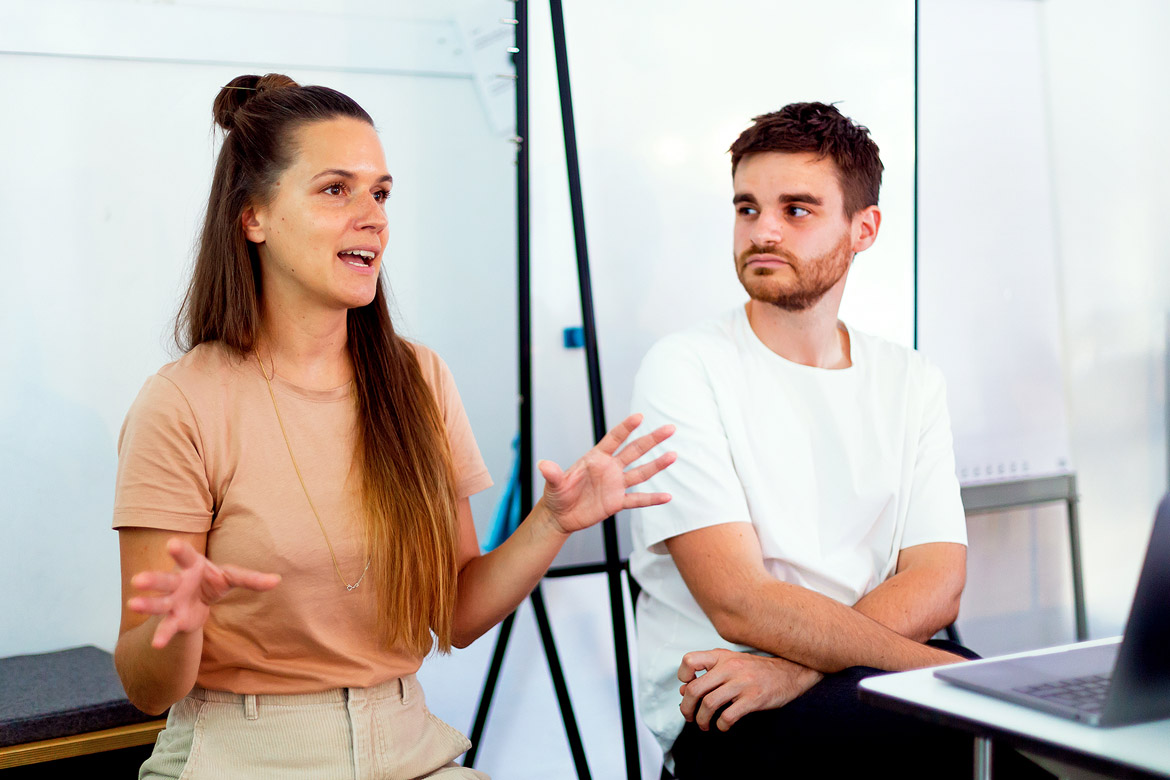During their three month artist residency in Kyoto, NION Community members Birgit and Guillaume (Studio B. Severin) explored the unique concepts surrounding the topic cleaning and learned how it can be a mediator of relationship, a training for body and mind and a way to express respect towards others and the environment.
Birgit has already shared many of their experiences on our website (January, February, March) and you can also find pictures and stories on the project blog itself.
Nevertheless, it was important to her and Guillaume to personally share their discoveries and learn about the ideas of NION community members when it comes to cleaning.
For example, the concept of cleaning and tidying the school together seemed to be quite normal for Japanese NION community members, whereas it was rather unusual for most of the others. Although some did superficial group cleaning at the end of the school year, most never had to worry about tidying up at all.
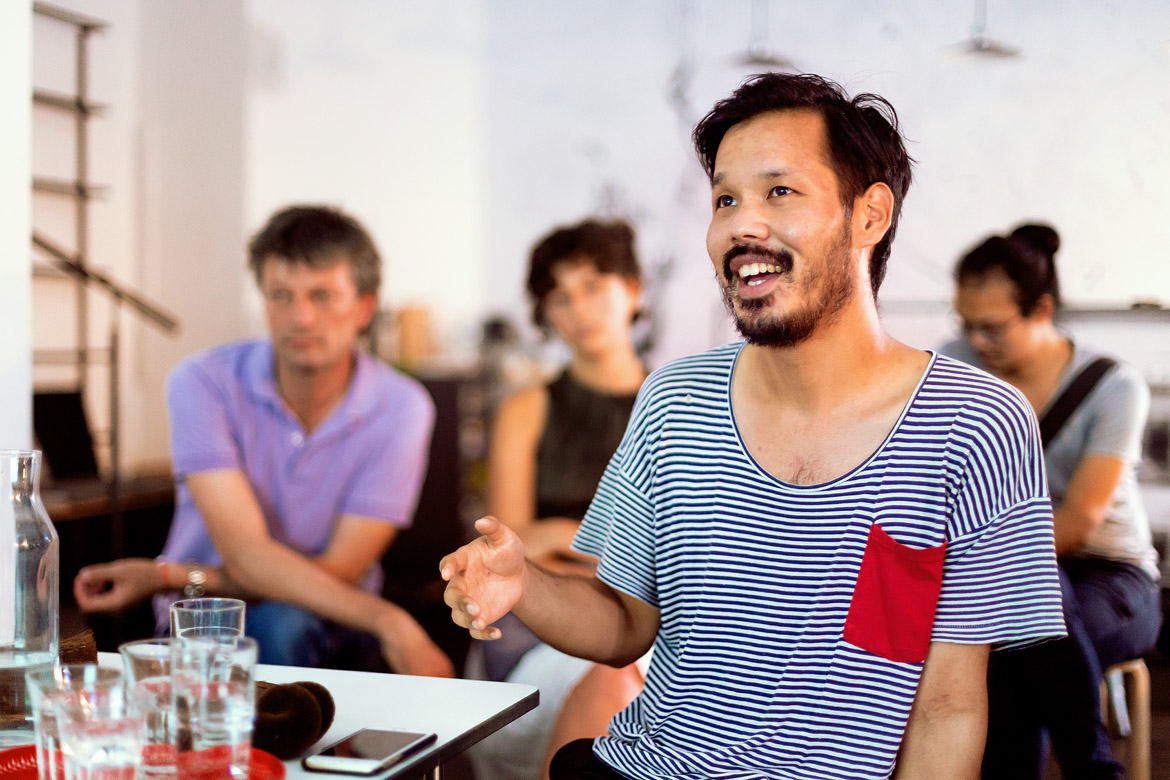
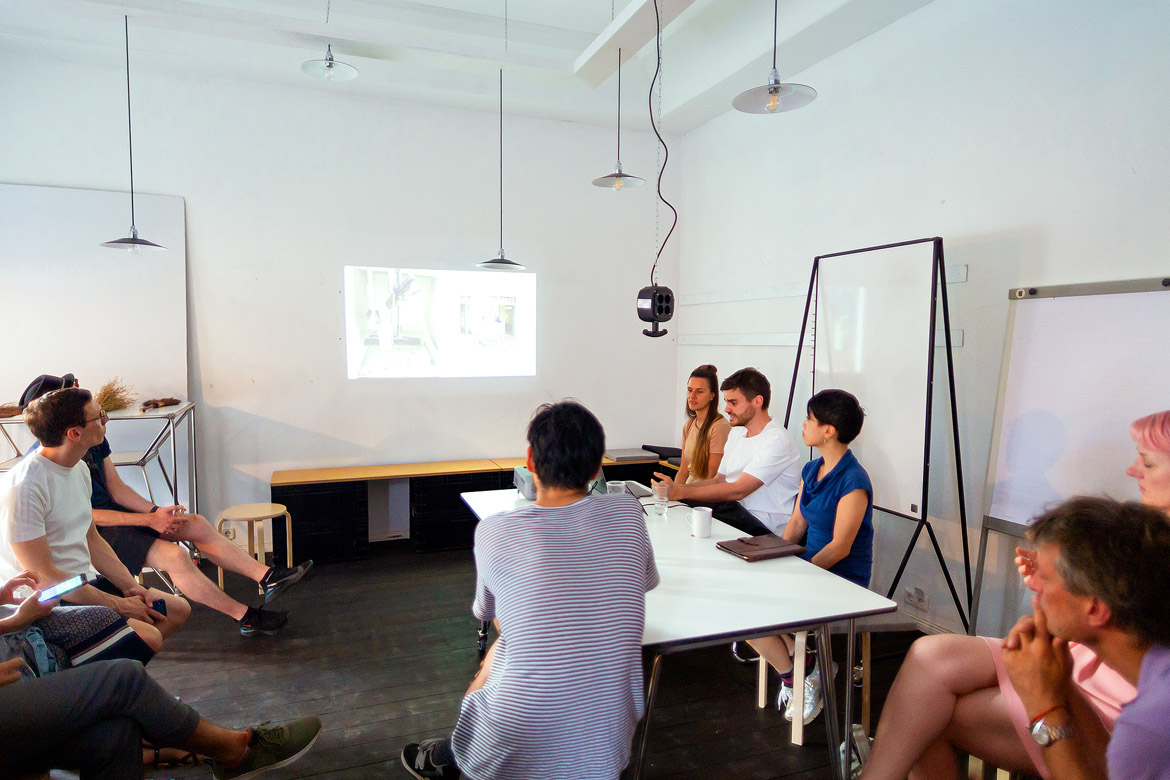
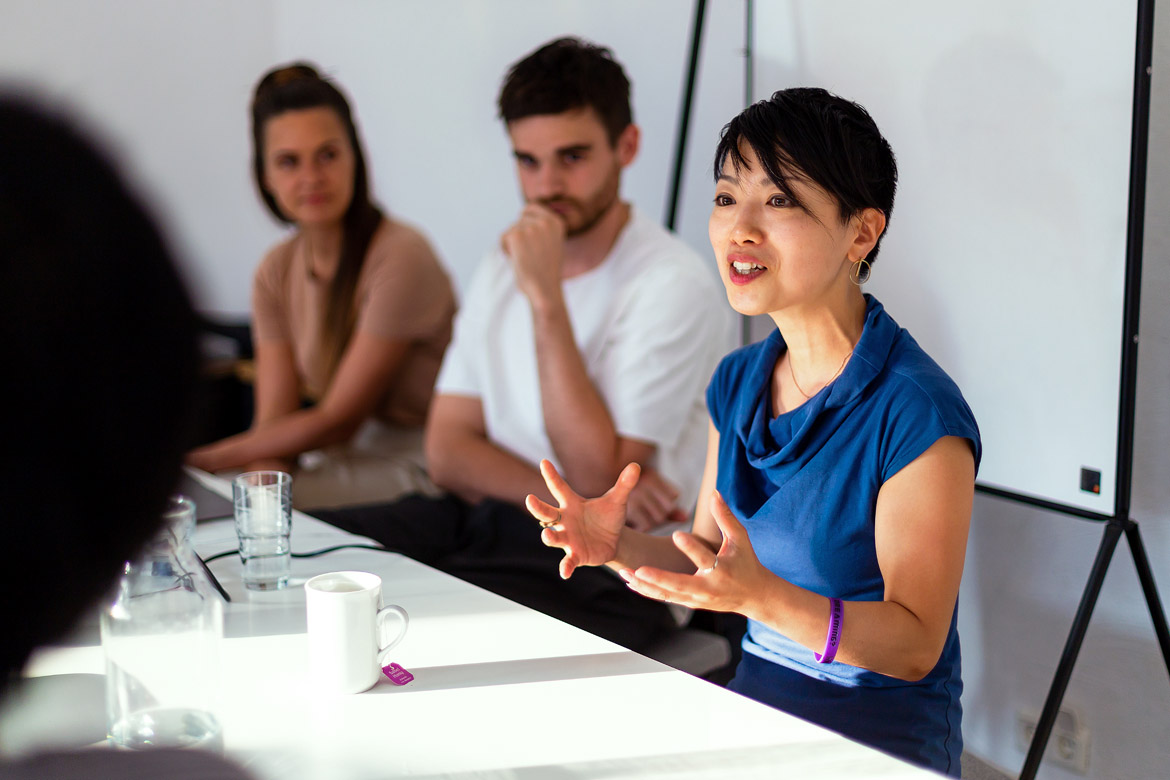
In front of dirt everyone is the same
The only exception was a British guy who attended a private school, where cleaning as a group was also important and where the director himself was responsible for cleaning the toilets and had even others forbidden to do so. I very much like the fact that very strict hierarchical structures were at least broken when it came to cleanliness.
Among other things, I work in a location, where many people with very different views on cleanliness and order come together. Like in an oversized shared flat, there are conflicts every now and then and I’m thinking that a weekly group cleaning ritual could create common ground and change a lot. Hopefully, Birgit and Guillaume will soon stop by and help us developing a cleaning concept that includes everybody.
Start your day with cleaning!
But not only common rituals create change: an important part of the lecture was about developing a personal morning cleaning routine in order to gradually change. It could result in a different mood, a growing appreciation of your surroundings and more positivity in your life in general. However, it is important never to spend more than around 20 minutes on it and not to have the ambition to finish the task, because you will continue the next day anyway. So maybe, if morning meditation, yoga or workouts are not the right things for you, this could be it! Although mental change won’t come immediately, one thing will improve straight away: your apartment will be cleaner and better organized.
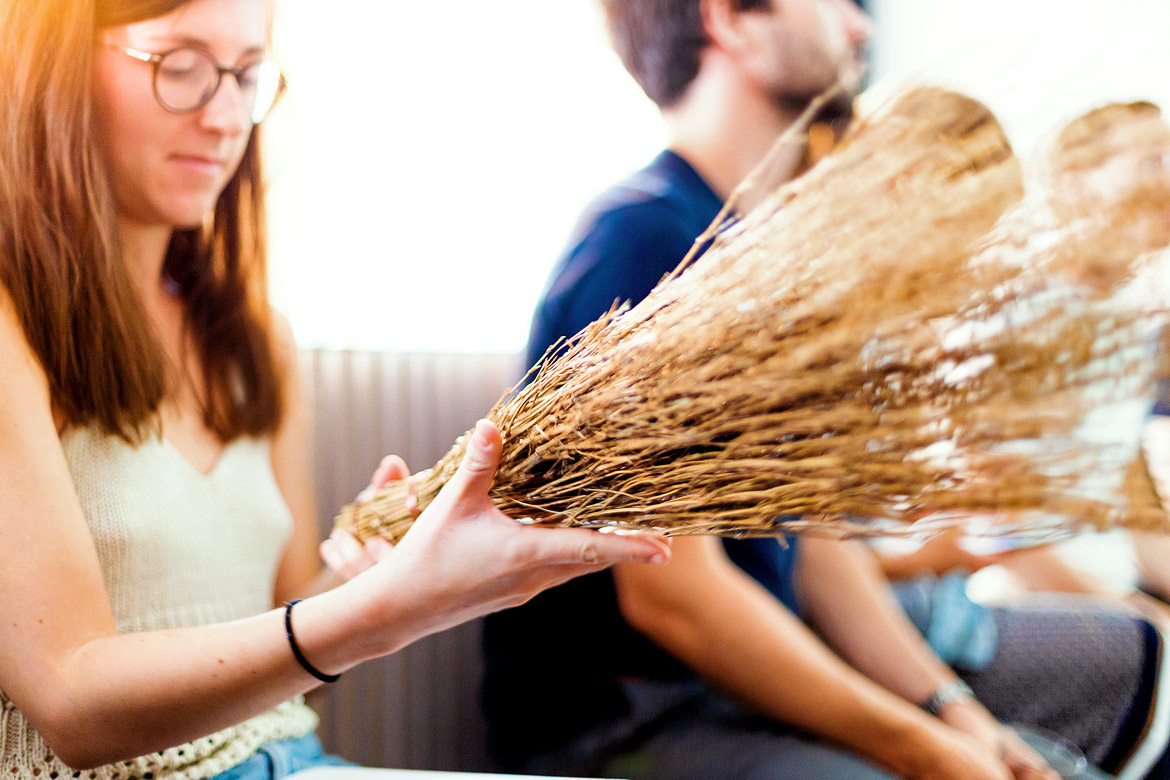
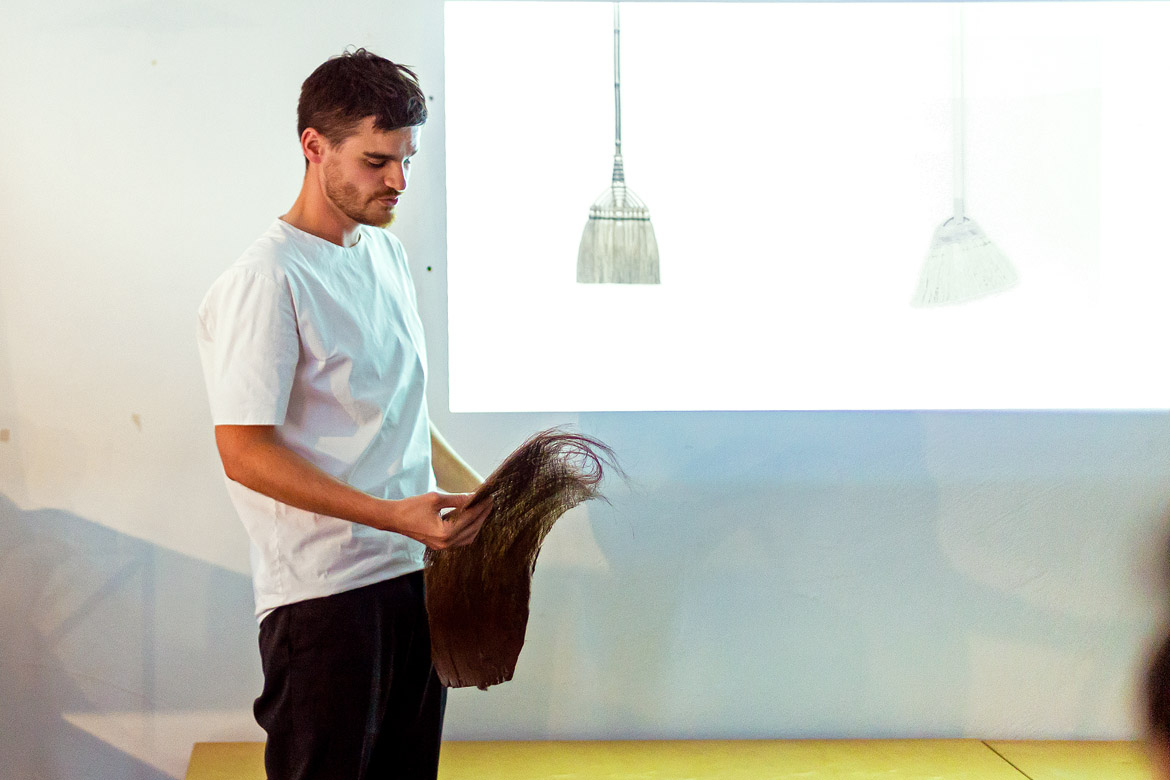
After a while you could even invest in some more sophisticated, beautifully crafted tools like the ones Birgit and Guillaume presented to us, as they’ve had met crafts(wo)men who manufacture all kinds of brooms, brushes and other cleaning tools of an impressive quality. They look more than art pieces, almost too good for everyday use, but I remember that I used a broom made out of thin branches while living in Japan, and this had already changed my perception during the cleaning process, made it feel more natural.
Cleaning like a zen monk
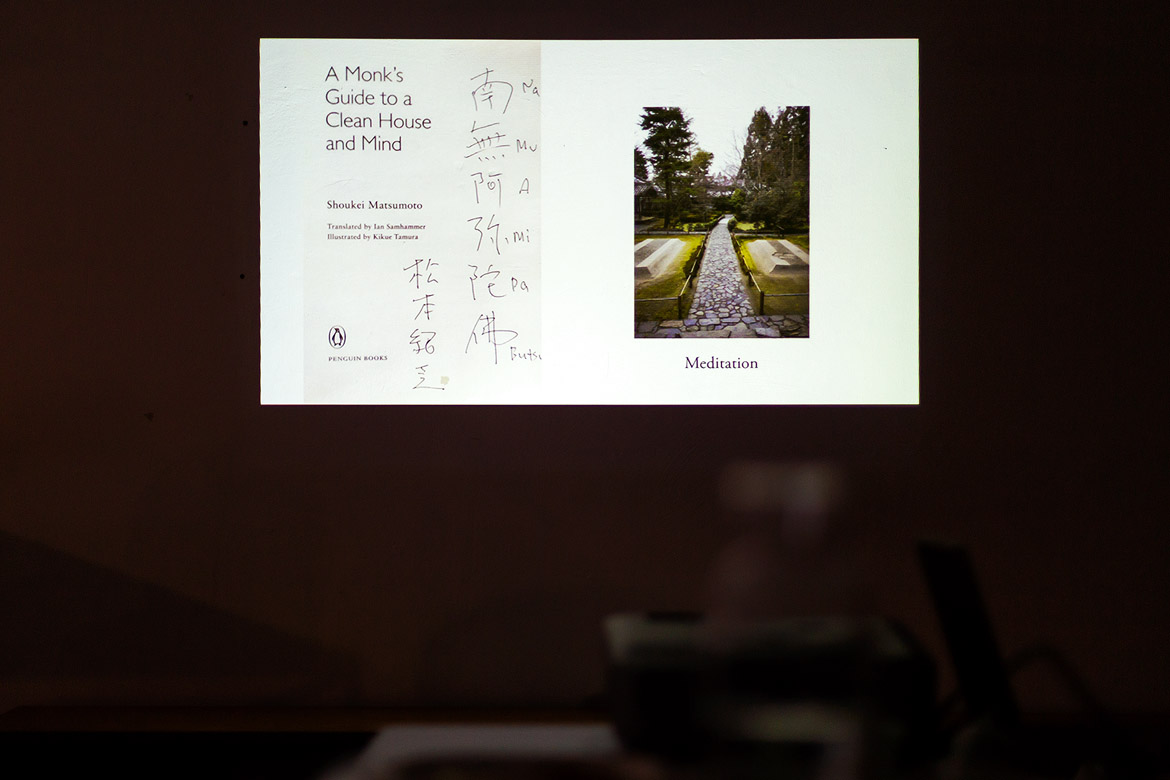
If you want to learn more about the connections between Zen Buddhism, cleaning and its influences on your mental well-being, you should read “A Monk’s Guide to a Clean House and Mind” by Shoukei Matsumoto. Although it was written by a monk for monks, this book has become Birgit’s and Guillaume’s guide during their artist residency.
And if you want to become really practical and not only want to do good for yourself, why not initiate a street cleaning event in your area? Just like Birgit and Guillaume did right after they’ve been back from Kyoto and felt quite overwhelmed by all the rubbish lying around on the sidewalks of their street in Neukölln. So put on some gloves and grab a huge plastic bag – unfortunately you’ll need it.
All pictures taken by Wanda Proft. Thank you <3

